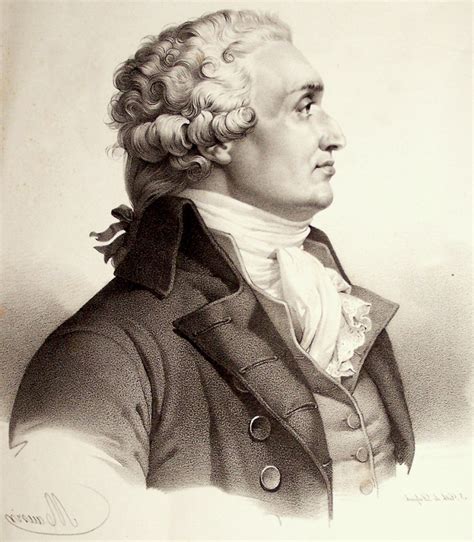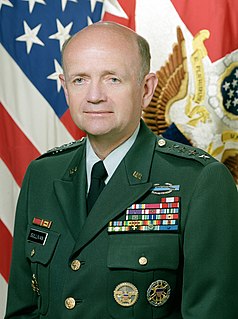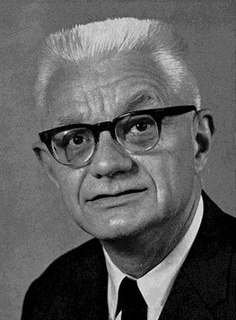A Quote by Nicolas de Caritat, marquis de Condorcet
A great man, who was convinced that the truths of political and moral science are capable of the same certainty as those that form the system of physical science, even in those branches like astronomy that seem to approximate mathematical certainty. He cherished this belief, for it led to the consoling hope that humanity would inevitably make progress toward a state of happiness and improved character even as it has already done in its knowledge of the truth.
Quote Topics
Astronomy
Belief
Branches
Capable
Certainty
Character
Cherished
Consoling
Convinced
Done
Even
Form
Great
Great Man
Happiness
Hope
Humanity
Improved
Inevitably
Knowledge
Led
Like
Make
Man
Mathematical
Moral
Physical
Physical Science
Political
Progress
Same
Science
Seem
State
System
Those
Toward
Truth
Truths
Would
Related Quotes
All those formal systems, in mathematics and physics and the philosophy of science, which claim to give foundations for certain truth are surely mistaken. I am tempted to say that we do not look for truth, but for knowledge. But I dislike this form of words, for two reasons. First of all, we do look for truth, however we define it, it is what we find that is knowledge. And second, what we fail to find is not truth, but certainty; the nature of truth is exactly the knowledge that we do find.
I know of no department of natural science more likely to reward a man who goes into it thoroughly than anthropology. There is an immense deal to be done in the science pure and simple, and it is one of those branches of inquiry which brings one into contact with the great problems of humanity in every direction.
Whether moral and social phenomena are really exceptions to the general certainty and uniformity of the course of nature; and how far the methods, by which so many of the laws of the physical world have been numbered among truths irrevocably acquired and universally assented to, can be made instrumental to the gradual formation of a similar body of received doctrine in moral and political science.
Science is not marginal. Like art, it is a universal possession of humanity, and scientific knowledge has become a vital part of our species' repertory. It comprises what we know of the material world with reasonable certainty. . . . Thanks to science and technology, access to factual information of all kinds is rising exponentially.
It seems perfectly clear that Economy, if it is to be a science at all, must be a mathematical science. There exists much prejudice against attempts to introduce the methods and language of mathematics into any branch of the moral sciences. Most persons appear to hold that the physical sciences form the proper sphere of mathematical method, and that the moral sciences demand some other method-I know not what.
People are saying that they want be convinced [about global warming], perfectly. They want to know the climate science projections with 100 per cent certainty. Well, we know a great deal and even with that there is still uncertainty. But the trend line is very clear. We never have 100 per cent certainty. We never have it. If you wait till you have 100 per cent certainty, something bad is going to happen on the battlefield. That's something we know. You have to act with incomplete information. You have to act based on the trend line.
Man's quest for knowledge is an expanding series whose limit is infinity, but philosophy seeks to attain that limit at one blow, by a short circuit providing the certainty of complete and inalterable truth. Science meanwhile advances at its gradual pace, often slowing to a crawl, and for periods it even walks in place, but eventually it reaches the various ultimate trenches dug by philosophical thought, and, quite heedless of the fact that it is not supposed to be able to cross those final barriers to the intellect, goes right on.
Those whose thinking is disciplined by science, like all others, need a basis for the good life, for aspiration, for courage to do great deeds. They need a faith to live by. The hope of the world lies in those who have such faith and who use the methods of science to make their visions become real. Such visions and hope and faith are not a part of science.
The capacity to tolerate complexity and welcome contradiction, not the need for simplicity and certainty, is the attribute of an explorer. Centuries ago, when some people suspended their search for absolute truth and began instead to ask how things worked, modern science was born. Curiously, it was by abandoning the search for absolute truth that science began to make progress, opening the material universe to human exploration.
It surely can be no offence to state, that the progress of science has led to new views, and that the consequences that can be deduced from the knowledge of a hundred facts may be very different from those deducible from five. It is also possible that the facts first known may be the exceptions to a rule and not the rule itself, and generalisations from these first-known facts, though useful at the time, may be highly mischievous, and impede the progress of the science if retained when it has made some advance.
At present, when the prevailing forms of society have become hindrances to the free expression of human powers, it is precisely the abstract branches of science, mathematics and theoretical physics, which ... offer a less distorted form of knowledge than other branches of science which are interwoven with the pattern of daily life, and the practicality of which seemingly testifies to their realistic character.
In times of uncertainty, we tend to move away from deterministic world views. And when we try to find moral footing for our actions, we compare ourselves to the foil of all foils, the Nazi period. It's a quest for moral certainty by saying, "Even if we're not doing great these days, at least we're not the Third Reich." Which can be consoling or alarmist. There's always a present-day agenda behind it.








































